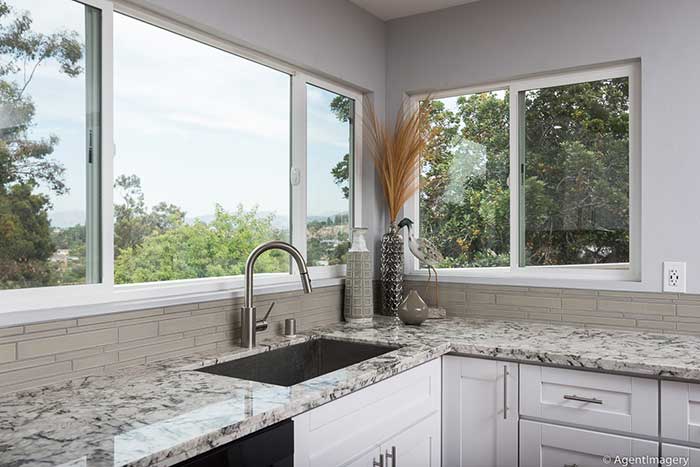7777 Alvarado Rd #700
La Mesa, CA 91942

The tenant-landlord relationship is going digital
Online property management tools are moving the landlord-tenant relationship to the internet
Source: Jeff Andrews at Curbed

Gino Zahnd was searching for an apartment in San Francisco when he noticed his credit score had unexpectedly dropped. Given the rental market in the Bay Area is ultra-competitive, he knew this could end up costing him an apartment and prolong his apartment hunt.
But even more frustrating than the score drop itself was the reason why it dropped: It wasn’t anything he did. Instead, a landlord had accidentally run a hard credit report—which can signal to lenders that a borrower is trying to open new accounts—six times by repeatedly refreshing a web browser when the initial submission didn’t immediately load.
“It pissed me off enough to think: ‘there’s gotta be a better way to start a relationship with a stranger than by handing them a packet of paper that has literally everything they need for identity theft,’” Zahnd said. “In San Francisco, you might do that half a dozen times before you actually get a place. You start wondering what all these people are doing with all that information.”
The experience ended up being the genesis of Cozy, one of a number of new online property management platforms for “do it yourself” landlords that Zahnd launched in 2013. The new platforms offer renters and landlords alike the convenience of organizing everything online, plus security measures to keep sensitive personal information private.
“What we found was [DIY landlords] were using Excel, Craigslist, and a lot of spreadsheets,” said Ryan Coon, cofounder of property management platform Avail. “That wasn’t really conducive to managing properties efficiently. It also didn’t provide a great experience for renters.”
Ask an average renter if they’ve ever met their landlord and a lot will say they haven’t. The rise of large-scale multifamily property management companies in the 1990s
the small details make a huge difference in a homes selling price
find out what you can do to get the most from your property.
But the big players in property management often obscure the fact that most landlords only own a few properties. Some of these landlords inherited a house that they rent out and they are often dubbed “accidental landlords,” because they never set out to be property managers. Others bought a new house and decided to rent their old one, while others still were more deliberate and bought a rental unit or two to supplement their income.
For single-family rental units, half of
The Market Is Full Of Buyers Looking For The RIght Home
And
Single-family landlords by properties owned
Half of all SFR landlords only own one property.
The “accidental landlords” aren’t particularly enthusiastic about managing their properties and tend to rely on antiquated methods for keeping tabs on them. It’s the same for other DIY landlords, especially older ones. The new property management platforms seek to not only make managing properties easier, but also relieve a lot of traditional pain points in the landlord-tenant relationship along the way.
“The two places where landlords wasted the most time and money was around chasing down rent checks and finding and retaining high quality tenants,” Zahnd said. “We thought if we could solve those two problems really well, and do those first, we [could] start a business there, then start building our product road map from that point. That’s what we did.”
Cozy and Avail seek to provide comprehensive support for landlords, from fielding maintenance requests to collecting rent. Counter to the “lean startup” methodology, Avail launched with a full suite of services, while Cozy gradually expanded.
Among the highlights for landlords on those platforms are screening tenants using credit and background checks, assistance in marketing the vacancy on listings platforms or elsewhere, collecting rent, and fielding maintenance requests. They also provide record-keeping tools and downloadable data.
But both platforms also target renters. A renter can submit one background and credit check for any property on the platform, instead of having to fill one out for one each time they apply to a new place. Rent payments can count toward a renter’s credit score, as both Cozy and Avail have partnerships with credit agencies to facilitate it.
Other startups in the space focus on one aspect of managing properties instead of trying to be comprehensive. For example, Houserie provides tools for screening tenants like background checks, credit checks, and eviction histories, but nothing once the tenant is actually in the rental unit.
The sheer number of DIY landlords—which Coon estimates to be about 8 million—has attracted a lot of startups to the space that have since come and gone, but it could also become attractive for established real estate companies to add tools for small-time landlords as a compliment to its other services.
That was the logic behind listings giant Zillow adding landlord tools to its existing products over the summer. In addition to paying and collecting rent, Zillow offers a common rental application and background check. But rather than getting into the space to compete directly with the likes of Cozy and Avail, Zillow is trying to grease the wheels of its existing products to encourage retention.
“Being the largest rental site out there, we obviously have a ton of renters and a ton of landlords,” said Zillow’s Jeremy Wacksman. “If you want to put your landlord hat on, think about the fact that you’re already getting most of your potential clients from us. So now if you can have a better experience with those clients. It helps you solve your problem faster.”
Zahnd and Coon say they’re not particularly worried about Zillow jumping in and remain focused on expanding and improving their own services. And with the space being so big, it’s likely that more than one online property management platform will be able to thrive.
“There’s a big opportunity,” said Coon. “Players like Zillow entering the space only validate that.”

